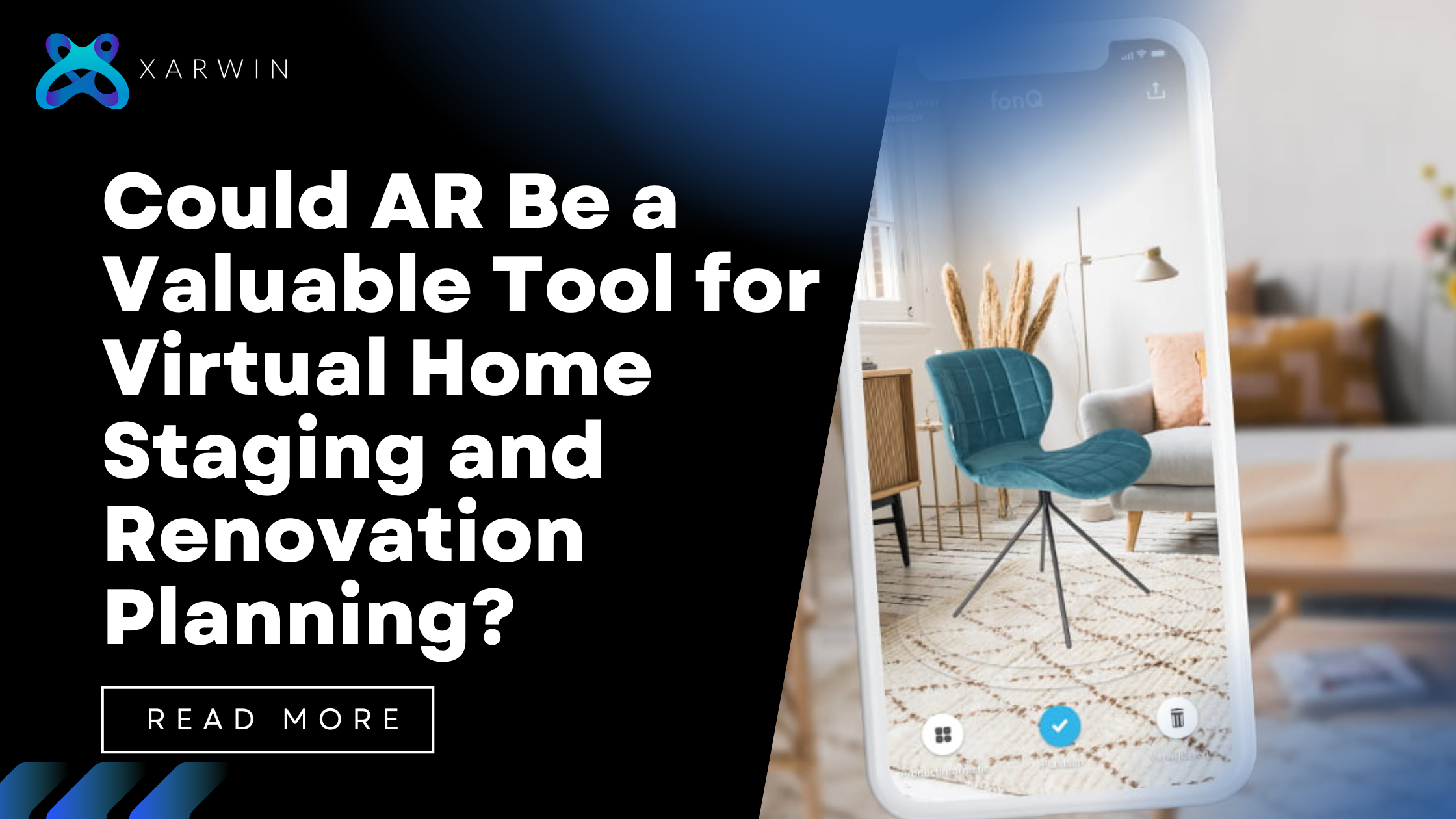In this post, we’ll put our lens on the applicability of AR in the hospitality sector, uncovering how it can reinvent guest experiences, enhance the proper operation of these businesses, and at the same time contribute to the environment and disabled guests.
1. Enhancing Guest Experiences
-
Virtual Tours and Property Exploration
One of the most transformative applications of AR in the hospitality industry is virtual tours. Before making a reservation, guests often want to understand what a hotel or resort looks like, but traditional photographs and descriptions can be limited in conveying the true ambiance. AR bridges this gap by allowing potential guests to take virtual tours of a property. With a smartphone or AR-enabled device, users can explore various areas such as lobbies, rooms, restaurants, spas, and conference facilities. This interactive approach provides a comprehensive view of the property, helping guests make informed booking decisions.
-
Interactive Room Guides
Once guests arrive at the hotel, AR can enhance their stay through interactive room guides. Instead of relying on traditional paper-based guides or calling the front desk, guests can use AR-enabled devices to access information about the room’s amenities, features, and instructions. By pointing their smartphone at specific items, they can receive step-by-step guidance on operating devices like smart TVs, thermostats, lighting controls, and more. This enhances the guest experience and reduces the need for printed materials, promoting sustainability.
-
Personalized Recommendations and Local Insights
AR can offer personalized recommendations for guests, creating a more tailored experience. By scanning an AR-enabled brochure or using a dedicated app, guests can receive suggestions for local attractions, restaurants, and activities based on their interests and preferences. This feature allows guests to discover hidden gems in the area, enhancing their overall stay. Additionally, AR can provide information about the hotel’s history, unique features, and special offers, making the stay more engaging and memorable.
2. Streamlining Operations
-
Maintenance and Housekeeping Efficiency
AR helps maintenance and housekeeping teams in hospitality venues. It provides digital data with troubleshooting tips and instructions for quick problem resolution. Staff can use AR-enabled devices to look at the computer instead of walking to the machine, speeding up the process. Housekeeping personnel receive electronic worklists for precision and uniformity, leading to guest satisfaction and a better standard of cleanliness for the entire resort.
-
Staff Training and Onboarding
Training new staff in the hospitality industry can be time-consuming and resource-intensive. AR can accelerate this process by providing immersive training experiences. New employees can use AR to learn about the hotel’s layout, safety protocols, customer service standards, and more. This technology allows new hires to interact with their surroundings and gain hands-on experience in a virtual environment, reducing the need for extensive in-person training. The result is a more efficient onboarding process and a better-prepared workforce.
3. Marketing and Engagement
-
Augmented Marketing Campaigns
AR opens up new possibilities for marketing and engagement within the hospitality industry. Hotels and resorts can use AR to create interactive and engaging marketing campaigns. For example, by scanning an AR-enabled brochure, guests can access additional content, such as videos, animations, or 3D models, that showcase the property’s unique features. AR can also be used to create virtual photo opportunities, where guests can take pictures with virtual characters or themed backgrounds. These photos can be shared on social media, helping to generate buzz and attract more visitors.
-
Augmented Event Experiences
For hotels that host events, conferences, and weddings, AR can enhance the overall experience for attendees. Event organizers can use AR to provide interactive maps, schedules, and information about exhibitors and speakers. This technology allows attendees to navigate the event with ease and receive real-time updates about sessions, workshops, and special offers. By adding an interactive element to events, hotels can create a more engaging and memorable experience for participants, ultimately leading to greater event success and customer satisfaction.
4. Sustainability and Accessibility
-
Supporting Sustainable Practices
Sustainability is a growing concern in the hospitality industry, with many businesses seeking to reduce their environmental footprint. AR can contribute to sustainability by minimizing the need for printed materials, such as brochures, menus, and room guides. Instead of relying on physical documents, hotels can provide digital content through AR, reducing paper waste and promoting eco-friendly practices. Additionally, AR can be used to educate guests about the hotel’s sustainability initiatives, encouraging them to participate in energy-saving practices and recycling programs.
-
Improving Accessibility for All Guests
AR can also improve accessibility for guests with disabilities, ensuring that everyone can enjoy a comfortable stay. For example, AR can provide visual and audio cues to guide guests who are visually or hearing impaired. This technology can also help guests with mobility challenges by providing accessible routes and information on accessible facilities. By incorporating AR into their accessibility initiatives, hotels can create a more inclusive environment that caters to a broader range of guests.
Conclusion
The hospitality industry can benefit from the contributions of augmented reality through enhancement. It can do all that delights the clients, eases the processes, decreases the amount of paper usage, offers eco-friendly behaviors, and helps those clients that have any disabilities to access. Utilization of AR is one way to make guests feel unforgettable experiences, increase efficiency, and be green in the future.
As a trailblazer in augmented reality (AR), Xarwin combines innovation with a user-centric approach to redefine industry standards. Its team of expert engineers, designers, and strategists excels in crafting immersive AR experiences across various sectors. With each project, the company not only meets current demands but also shapes future trends, establishing itself as a leading force in the AR landscape.




